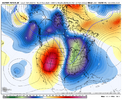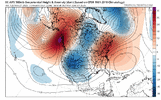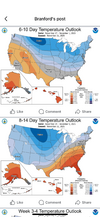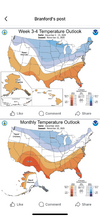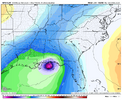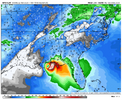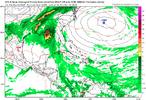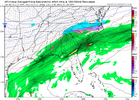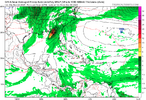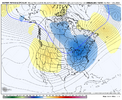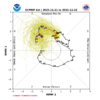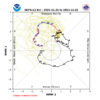Difference between reflection vs. absorption with the SPV (from the interwebs)...
Reflection occurs when upward-propagating planetary waves encounter a specific condition within the stratosphere that acts as a barrier, forcing them back down into the troposphere.
Absorption (often leading to a major Sudden Stratospheric Warming, or SSW event) occurs when waves are able to propagate into the stratosphere, where their energy dissipates and converts into heat and momentum, disrupting the polar vortex.
Feature
View attachment 177033View attachment 177033AGU Publications +6 | Stratospheric Reflection | Stratospheric Absorption |
|---|
| Wave interaction | Planetary waves traveling upward from the troposphere encounter a "reflecting surface" (a specific condition in the polar vortex) and are forced back down into the troposphere. | Waves lose energy as they propagate into the stratosphere, where that energy works to decelerate the polar vortex and warms the surrounding air. |
| Polar Vortex | The polar vortex remains strong or quickly re-establishes itself after a minor disruption. | The polar vortex is significantly weakened or split apart due to the sustained transfer of wave energy, leading to a major SSW event. |
| Tropospheric Impact | The downward-traveling waves amplify existing weather patterns in the troposphere, which can lead to specific surface climate anomalies, such as cold spells over North America or blocking patterns over the North Pacific. | The event has a longer timescale and a larger-scale impact on the general atmospheric circulation, often leading to a negative phase of the Arctic Oscillation, which can bring widespread cold air outbreaks to mid-latitudes. |
| Cause | Typically associated with shorter, more transient pulses of wave activity from the troposphere. | Associated with longer, more persistent periods of planetary wave activity (eddy heat flux) propagating upward from the troposphere. |
In essence, reflection involves waves bouncing off the stratosphere and returning to influence the troposphere, while absorption involves waves being 'taken in' by the stratosphere, fundamentally changing its circulation and indirectly influencing the troposphere with a more persistent, widespread effect.

